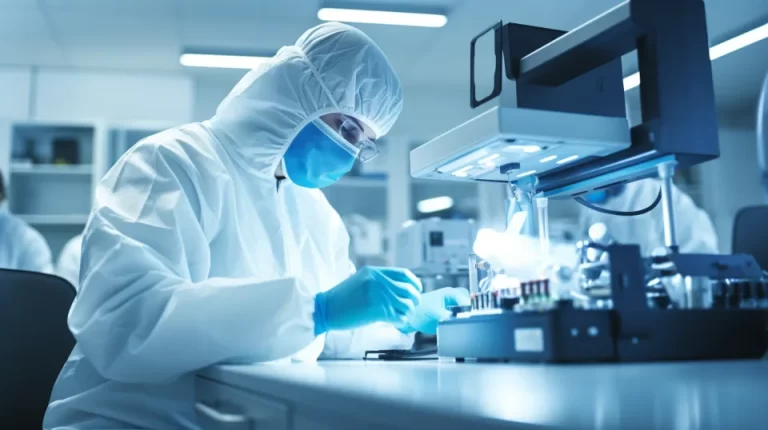The field of biotechnology is on the cusp of revolutionizing the medical landscape, promising transformative breakthroughs that could redefine the boundaries of what is medically possible. From gene editing to advanced biopharmaceuticals, the innovations in biotechnology are not just enhancing the quality of medical care but are also paving the way for therapies that were once deemed unimaginable. This article explores the most significant biotechnology breakthroughs and their profound impact on the future of medicine, particularly within the UK and the broader EU.
Revolutionizing Drug Development with Biopharmaceuticals
Biopharmaceuticals are at the forefront of biotechnology breakthroughs, offering new therapies that are derived from biological sources rather than synthesized chemicals. These drugs have revolutionized therapy options for a myriad of symptoms, including cancers, autoimmune diseases, and chronic disorders. Biopharmaceuticals work by targeting specific cellular processes with high precision, reducing side effects and improving user outcomes.
In the UK, the biopharmaceutical sector is booming, driven by supportive government policies and a strong network of academic and research institutions. The innovation in biopharmaceuticals not only bolsters the healthcare system but also positions the UK as a leader in the global biotechnology arena.
Gene Therapy and Genetic Engineering: The Frontier of Personalized Medicine
Gene therapy and genetic engineering are perhaps the most exhilarating areas of biotechnology. These technologies involve modifying or manipulating the genetic material of cells to fight or prevent disease. One of the most talked-about techniques in genetic engineering is CRISPR-Cas9, which allows geneticists to edit parts of the genome by removing, adding, or altering sections of the DNA sequence.
The implications for medicine are vast. For instance, gene therapy has the potential to cure genetic disorders by repairing or replacing faulty genes. This is not just hypothetical; in the EU, several gene therapies have already been approved for scientific use, offering hope to users with rare genetic symptoms who previously had no effective therapies available.
Advances in Tissue Engineering and Regenerative Medicine
Tissue engineering and regenerative medicine are changing the way health professionals think about healing and repair. Using a combination of cells, engineering, and materials methods, along with suitable biochemical and physicochemical factors, this approach enables the restoration, maintenance, or improvement of different types of biological tissues. For example, biotechnologists are developing ways to grow tissues and organs in the lab, which could eventually eliminate the need for organ donations and transplant waiting lists.
In the EU, research into regenerative medicine is accelerating, with numerous projects funded to explore new therapies for heart disease, blood sugar regulation problems, and spinal cord injuries, among others. The potential to regenerate damaged tissues and organs not only offers a lifeline to millions of users but also opens a new frontier in medical science.
The Role of Biotechnology in Fighting Infectious Diseases
Biotechnology is also essential in the fight against infectious diseases. The recent global health crises have underscored the importance of rapid development of vaccines and antiviral therapies. Modern biotechnological techniques, such as those used to develop mRNA vaccines, are pivotal in responding to infectious disease outbreaks with unprecedented speed and efficacy.
The UK’s response to the COVID-19 pandemic, including the rapid development and deployment of vaccines, showcased the critical role of biotechnology in public health. The ability to quickly adapt and innovate will remain crucial as we face other emerging infectious diseases.
Ethical and Regulatory Considerations
As biotechnology continues to advance, it also raises important ethical and regulatory questions. Issues such as gene editing in humans, the use of genetically modified organisms (GMOs), and the implications of creating synthetic life are subjects of ongoing debate. In both the UK and EU, robust regulatory frameworks are crucial to ensure that biotechnological innovations are developed and used responsibly, with appropriate consideration for ethical concerns.
Conclusion
Biotechnology is not just another industrial sector; it is a transformative force in modern medicine, offering solutions that were once considered science fiction. The breakthroughs in this field are reshaping the future of medicine by enabling more precise, effective, and personalized therapies. As we stand on the brink of these exciting developments, continued investment in research and a balanced regulatory approach will be key to realizing the full potential of biotechnology, ensuring a healthier future for all.



